UNC Charlotte

CLAS Alumni Among Recipients of Bank of America Alumni Awards
UNC Charlotte’s Bank of America Alumni Network in December honored three distinguished individuals, including CLAS alumni, for their professional and community service achievements.

Study Shows What Dads Do While Moms Do Housework, Child Care
For the first time, researchers have evidence of exactly what dads are doing while moms are taking care of housework or tending to their child. A study by Jill Yavorsky, assistant professor of sociology at UNC Charlotte, and colleagues at The Ohio State University, found men were most often relaxing while women did housework or child care.
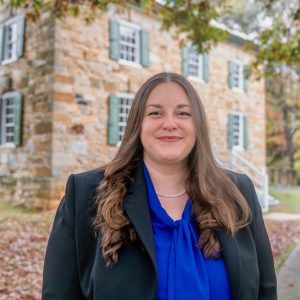
Alumna Named CEO Of The Charlotte Museum Of History
The Charlotte Museum of History has named UNC Charlotte alumna Adria Focht as its new president and CEO, effective Nov. 27. Focht comes to the museum from the Kings Mountain Historical Museum, where she was director and curator.
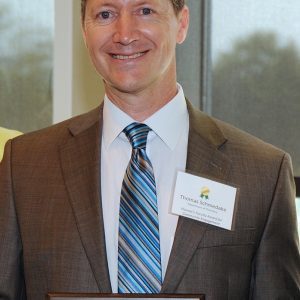
Provost Honors Teaching, Engagement, Advising With Annual Awards
The Department of English and Chemistry Associate Professor Thomas Schmedake have earned awards of excellence from Provost Joan Lorden for their commitment to students and citizens of the region. Lorden presented the Award for Excellence in Teaching to the English Department and the Faculty Award for Community Engagement to Schmedake.
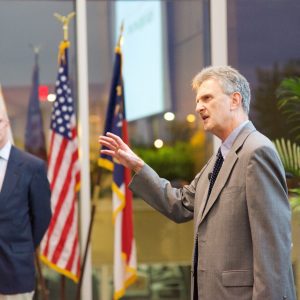
Research Illuminates How Trauma Can Lead to Growth
Professor Richard Tedeschi and fellow researcher Lawrence Calhoun, UNC Charlotte emeritus professor in psychology, years ago coined the phrase “posttraumatic growth” to describe what they have witnessed – that some people will grow and change in new ways after they undergo trauma. Their work has continued to grow and evolve, as they find new avenues of research, gain new collaborators, mentor new students and influence authors of popular press books and researchers.
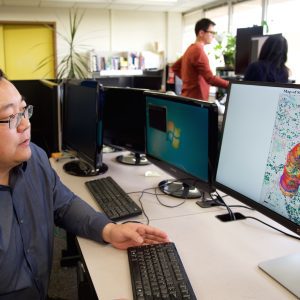
As “Earth Detective,” Tang Addresses Societal Programs Through Spatial Research
Call him an earth sleuth. Wenwu Tang, assistant professor in the Department of Geography and Earth Sciences, scoops up information from a targeted locale and analyzes it for clues to address any number of societal problems with a spatial component. With his research, Tang looks at land use, land cover change, how traffic patterns may influence transportation, how pedestrians or animals may move in an area or even how disease may spread.
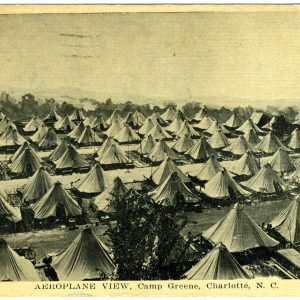
History Professor, Students Partner With Community on Camp Greene Research
Located just outside Uptown Charlotte, near Wilkinson Boulevard and Tuckaseegee Road, is Camp Greene. Opened originally in September 1917, Camp Greene was named for the Revolutionary War hero Nathanael Greene. Associate Professor of History Heather Perry and her students are part of a University-community partnership to help history come alive.
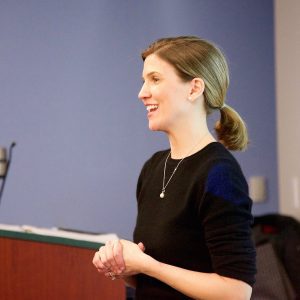
Researcher’s Film On Arts Healing Power Earns Emmy® Nomination
For a film that illustrates how the arts can promote healing in healthcare settings, UNC Charlotte researcher Margaret M. Quinlan and colleagues Lynn Harter and Evan Shaw have earned a regional Emmy® nomination from the Ohio Valley Chapter of the National Academy of Television Arts and Sciences.
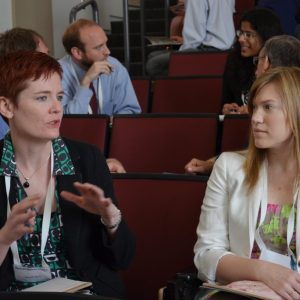
Smart, Connected Communities Provide Focus for INSS Conference
Social sustainability has been defined as creating places that promote well-being by understanding what people need from the places they live and work. UNC Charlotte continues to support this effort through the annual Integrated Network for Social Sustainability conference, scheduled for Monday, June 5, through Wednesday, June 7.

Mars Research Expands Insights Into Earth’s Surface Processes
The drive to learn how the sun weathers rock has taken UNC Charlotte earth scientist Martha-Cary “Missy” Eppes to great lengths – to the arid deserts of the Southwest, the periglacial boulder fields of Pennsylvania and Virginia, and even to the surface of Mars. Mechanical weathering, the physical means by which rock is broken into smaller fragments, is one of the primary processes that defines Earth as we know it. Without it, there would be no erosion, no soil, no sediment from which resources like water and oil can be readily drawn, and no ready access to rock nutrients that are required by flora and in turn, fauna.